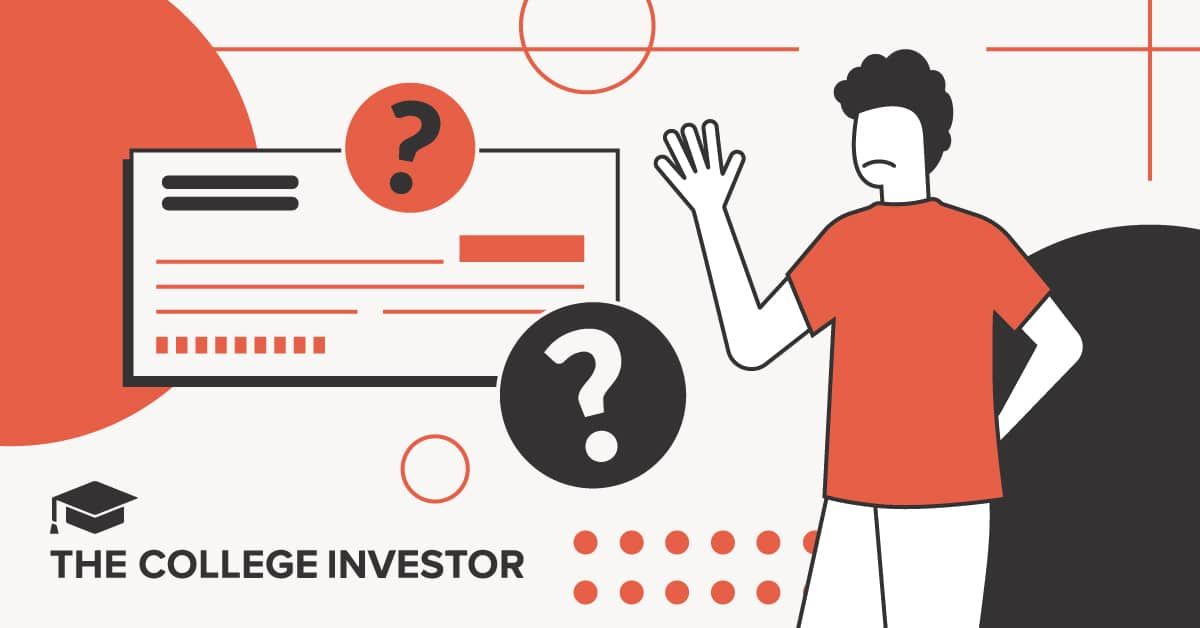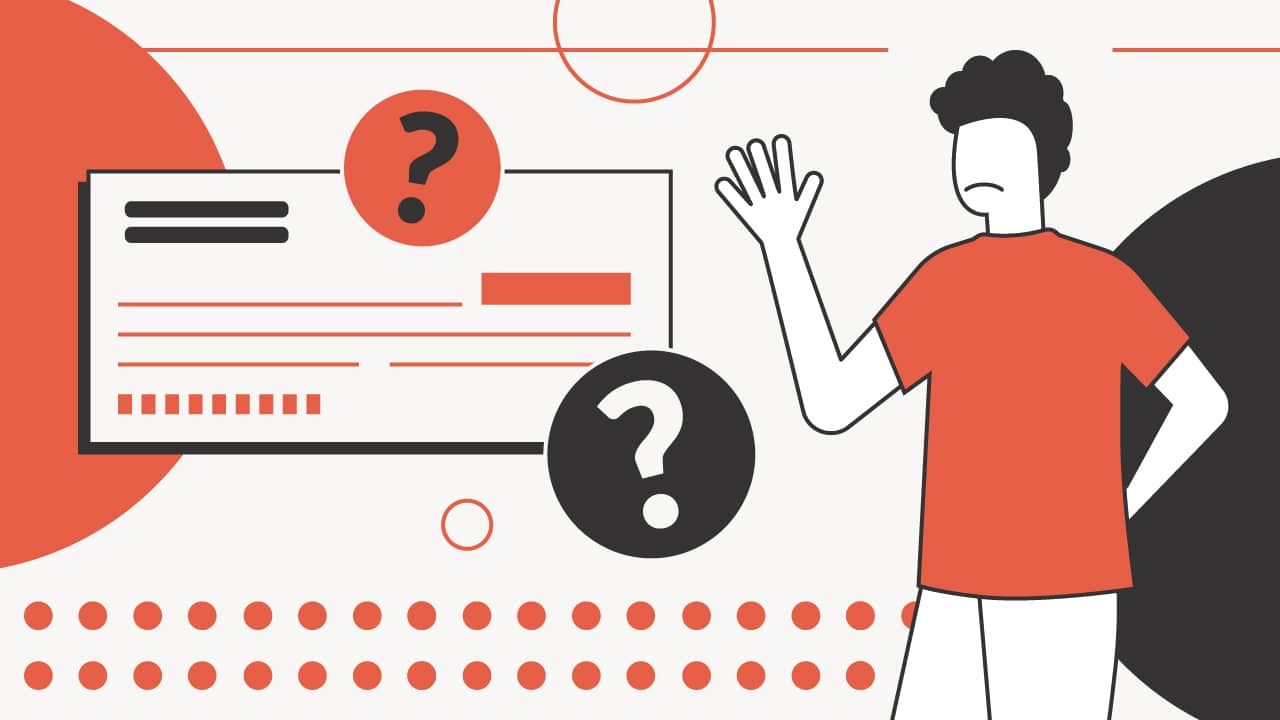
Borrower Defense to Repayment can discharge a borrower’s federal student loans when they were defrauded by their college. But what does the Department of Education define as "defrauded"?
With the recent reports of colleges (especially some 'prestigious' ones) providing false information to boost their scores in rankings like US News, and other reports of colleges sending misleading financial aid award letters to make their schools appear less expensive to attend - the question of what is considered fraud extends well beyond the issues that we've seen with for-profit colleges.
Can you qualify for loan forgiveness if your college provided false and misleading information to the college rankings? Can you qualify for student loan forgiveness if your college provided a misleading financial aid award letter?
The answer is, as is often the case in matters relating to financial aid for college, “it depends.”
What Is The Borrower Defense To Repayment Student Loan Forgiveness Program?
The Higher Education Act of 1965 requires the U.S. Department of Education to issue regulations specifying when a borrower can assert a defense to repayment of their federal student loans based on a college’s acts or omissions. The law limits recoveries to no more than what the borrower has previously paid, in addition to cancelling the debt.
The regulations specify that a borrower may qualify for the defense to repayment when:
- The college violated federal or state laws, or
- Engaged in a misrepresentation concerning the borrower’s federal student loans, or
- Engaged in a misrepresentation regarding enrollment at the college, or
- Engaged in a misrepresentation about the educational services for which the loans were made.
In some cases, the borrower must have been financially harmed by the misrepresentation.
Misrepresentations include not just false, erroneous and misleading statements, but also omissions of relevant facts that yielded a false, erroneous or misleading statement.
When a borrower’s defense to repayment claim is approved, the borrower’s federal student loans are cancelled and all previous payments are refunded to the borrower. All negative credit reports relating to the loans are also removed from the borrower’s credit history and the borrower’s eligibility for federal student aid is restored, if applicable. Borrower defense to repayment discharges are tax-free.
Related: How To Get Help If You Were Defrauded By Your College
Borrower Defense To Repayment Statistics
Borrower Defense to Repayment discharges were rare prior to 2016, when the regulations were updated.
To date, most of the borrower defense to repayment discharges have been for borrowers who attended for-profit colleges that closed, such as Corinthian Colleges and ITT Technical Institute.
But, nothing in the regulations limits the borrower defense to repayment discharge to just for-profit colleges or to closed colleges. If a public or private non-profit college made misrepresentations concerning financial charges, the nature of its educational programs or the employability of its graduates, borrowers who attended the college may be eligible for a borrower defense to repayment discharge.
As of November 30, 2022, the U.S. Department of Education has received 762,800 applications for borrower defense to repayment discharges. Of these, 313,742 applications (41%) have been processed and 449,058 applications are still pending. Of the processed applications, 190,257 (61%) have been approved and 109,393 have been denied. These statistics do not include the Sweet settlement, which applies to more than 200,000 borrowers. These statistics also do not include pending reconsideration of denied applications.
Regulations For The Borrower Defense To Repayment
There are three different sets of existing regulations concerning the borrower defense to repayment, depending on when the loans were first disbursed.
- 34 CFR 685.206(c) for loans first disbursed prior to July 1, 2017 (1995 Regulations)
- 34 CFR 685.206(d) for loans first disbursed on or after July 1, 2017 and before July 1, 2020 (2016 Regulations)
- 34 CFR 685.206(e) for loans first disbursed on or after July 1, 2020 (2019 Regulations)
The regulations at 34 CFR 685.206(c) largely reflect the statutory language and do not otherwise define misrepresentation except through reference to 34 CFR 685.222 paragraphs (e) through (k).
However, 34 CFR 685.222(i)(4) makes reference to the examples of borrower relief in 34 CFRR part 685, subpart B, Appendix A. The regulations give six examples demonstrating relief, but state, “The actual relief awarded will be determined by the Department official or the hearing official deciding the claim, who shall not be bound by these examples.”
Example 6 from Appendix A specifically discusses information provided to college ranking organizations.
An individual wishes to enroll in a selective, regionally accredited liberal arts school. The school gives inflated data to a well-regarded school ranking organization regarding the median grade point average of recent entrants and also includes that inflated data in its own marketing materials. This inflated data raises the place of the school in the organization's rankings in independent publications. The individual enrolls in the school and graduates. Soon after graduating, the individual learns from the news that the school falsified admissions data. Notwithstanding this issue, degrees from the school continue to serve as effective, well-regarded liberal arts credentials.
The Department also determines that the school violated the title IV requirement that it not make substantial misrepresentations pursuant to 34 CFR 668.71, which constitutes an enforceable violation separate and apart from any borrower defense relief.
Appropriate Relief: The borrower relied on the misrepresentation about the admissions data to his detriment, because the misrepresentation factored into the borrower's decision to choose the school over others. However, the borrower received a selective liberal arts education which represents the value that he could reasonably expect, and gets no relief.
Although this would appear to preclude a borrower defense claim based on a college providing false information to a college ranking organization, the official deciding the borrower defense claim is not bound by this example. A borrower could argue that they paid a premium to enroll at the college based on the inflated college rankings and therefore were harmed because they overpaid for a lower quality education. This example also does not necessarily apply to more recent federal student loans made on or after July 1, 2020.
The regulations at 34 CFR 685.206(d) define misrepresentation through reference to the entirety of 34 CFR 685.222.
34 CFR 685.222 applies to loans first disbursed prior to July 1, 2017 and to loans first disbursed on or after July 1, 2017 and before July 1, 2020. In particular, 34 CFR 685.222(d) defines substantial misrepresentation through reference to 34 CFR part 668, subpart F.
34 CFR part 668, subpart F (including 34 CFR 668.71 through 34 CFR 668.74) defines misrepresentation and substantial misrepresentation. In particular, the regulations at 34 CFR 668.71(b) specify that misrepresentations by a college can involve misrepresentations about the nature of its educational program, its financial charges, or the employability of its graduates.
- The regulations at 34 CFR 668.72 specify that misrepresentations concerning the nature of the college’s educational program can include misrepresentations about the availability of financial aid and the consumer disclosure requirements at 34 CFR 668.42 (financial assistance information) and 34 CFR 668.43 (institutional information, such as the cost of attending). These misrepresentations can also include misrepresentations concerning the college’s accreditation, graduation requirements, size, location, facilities, equipment, and the number, qualifications, training and experience of the faculty.
- The regulations at 34 CFR 668.73 specify that misrepresentations concerning the nature of financial charges to attend the college include misrepresentations concerning the cost of the program and financial aid, including the nature of any financial aid offered to students (including the student’s responsibility to repay any loans).
The regulations at 34 CFR 685.206(e)(3) discuss evidence that a misrepresentation may have occurred as including:
(iii) Actual institutional selectivity rates or rankings, student admission profiles, or institutional rankings that are materially different from those included in the institution's marketing materials, website, or other communications made to the student or provided by the institution to national ranking organizations;
…
(vii) A representation regarding the availability, amount, or nature of any financial assistance available to students from the institution or any other entity to pay the costs of attendance at the institution that is materially different in availability, amount, or nature from the actual financial assistance available to the borrower from the institution or any other entity to pay the costs of attendance at the institution after enrollment;
(viii) A representation regarding the amount, method, or timing of payment of tuition and fees that the student would be charged for the program that is materially different in amount, method, or timing of payment from the actual tuition and fees charged to the student;
The definition of “financial harm” at 34 CFR 685.206(e)(4) discusses evidence that may include:
(ii) A significant difference between the amount or nature of the tuition and fees that the institution represented to the borrower that the institution would charge or was charging and the actual amount or nature of the tuition and fees charged by the institution for which the Direct Loan was disbursed or for which a loan repaid by the Direct Consolidation Loan was disbursed;
In addition, new regulations for borrower defense to repayment will go into effect on July 1, 2023. The new regulations apply to borrower defense applications received on or after July 1, 2023 or which were still pending on July 1, 2023.
The new regulations revise Subpart F (34 CFR 668.71 through 34 CFR 668.74 and the addition of 34 CFR 668.75 et seq.), including the definitions of misrepresentation and substantial misrepresentation, and add a new section concerning aggressive and deceptive recruiting tactics or conduct in Subpart R. In particular, 34 CFR 668.501(a)(4)(iii) defines aggressive and deceptive recruitment tactics and conduct as including actions that “Present false rankings of the institution or its programs.”
Loan Forgiveness For Misrepresentations Relating To College Rankings And Award Letters
Thus, it appears that a borrower may be eligible for a borrower defense to repayment discharge, depending on whether the 1995, 2016, 2019 or 2022 regulations apply, based on misrepresentations the college made to college ranking organizations and in financial aid award letters.
Examples include:
- Inaccurate information about a college’s ranking
- Statements concerning a college’s ranking when the ranking is based on inaccurate information provided by the college to the college ranking organization
- Inaccurate information about a college’s selectivity (admission rate)
- Inaccurate information about average class size and student-faculty ratios
- Inaccurate information about the qualifications of a college’s faculty
- Inaccurate information about the number of full-time faculty
- Inaccurate information about a college’s graduation rates, job placement rates and earnings after graduation
- Inaccurate information about licensing passage rates or licensing requirements
- Inaccurate information about the ability to transfer credits to other colleges
- Inaccurate information about the college’s accreditation, including program-specific accreditation
- Inaccurate information about tuition and fees, and eligibility for financial aid
- Inaccurate and incomplete information concerning the college’s cost of attendance in a financial aid award letter, such as the omission of indirect costs or the provision of old information concerning cost of attendance components (e.g., rent and textbook costs)
- Misrepresentations concerning the nature of financial aid, such as characterizing a loan as a grant or as reducing college costs, or failing to identify loans as loans that must be repaid, usually with interest
- Misrepresentations concerning the terms or amount of a loan
If any of these misrepresentations influenced you to enroll at the college or take out federal student loans, you may be eligible for a borrower defense to repayment discharge, even if you graduated from the college and got a job.
Colleges Behaving Badly
Several colleges are alleged to have provided inaccurate information to college ranking organizations. Recent examples include:
- Michael Thaddeus, a math professor at Columbia University, alleged that Columbia University had provided inaccurate information concerning class size, the student-faculty ratio, the number of faculty with terminal degrees, the percentage of faculty who are full-time, spending on instruction, and graduation rates.
- The University of Southern California withdrew the Rossier School of Education from the U.S. News and World Report graduate school rankings after it discovered that it had provided inaccurate data to the publication. A subsequent lawsuit alleges the university used misleading ranking information to attract students to its online degree programs.
- Temple University allegedly inflated student test scores and grade point averages to improve the rankings of its MBA program.
- The University of Oklahoma is alleged to have provided inaccurate information about the percentage of alumni who contribute to the college.
There are potentially more widespread problems concerning college financial aid award letters. A report by the U.S. Government Accountability Office (GAO) found several problems with college financial aid award letters:
- 50% of colleges understate the net price in their financial aid award letters. Some colleges focus on just the amount owed to the college. Some colleges subtract loans in addition to gift aid from college costs when estimating the net price.
- 31% of colleges do not provide the full cost of attendance in their financial aid award letters, including key direct and indirect costs.
- 24% of colleges do not label the type of financial aid in their award letters, blurring the distinction between grants and loans.
- 15% of colleges do not separate gift aid and loans in their award letters.
These practices are misleading because they make the college seem less expensive than it actually is and promote confusion about the real cost of college.
These practices place colleges at risk from borrowers submitting borrower defense to repayment claims, for which the colleges might be liable.
How To Apply For Student Loan Forgiveness If You've Been Misled By College Rankings Or Financial Aid Award Letters
Borrowers can file a borrower defense to repayment claim online at StudentAid.gov/borrower-defense. They can also submit a Borrower Defense to Repayment Application (PDF) by postal mail to U.S. Department of Education, 4255 W HWY 90, Monticello, KY 42633.
When filing a borrower defense to repayment claim, include documentation that supports the claim, such as copies of advertisements, brochures and other promotional material, including pages from the college’s website, course catalog and handbook. Copies of lawsuits filed by the Consumer Financial Protection Bureau (CFPB), state attorneys general, and private attorneys may also be helpful.
If you have questions, call the U.S. Department of Education’s Borrower Defense hotline at 1-855-279-6207.
1. Higher Education Act of 1965. https://www.govinfo.gov/content/pkg/COMPS-765/pdf/COMPS-765.pdf
2. 34 CFR § 685.206. https://www.law.cornell.edu/cfr/text/34/685.206
3. 34 CFR § 685.222. https://www.law.cornell.edu/cfr/text/34/685.222
4. 34 CFR Appendix A. https://www.law.cornell.edu/cfr/text/34/appendix-A_to_subpart_B_of_part_685
5. 34 CFR § 668.71 Subpart F. https://www.ecfr.gov/current/title-34/subtitle-B/chapter-VI/part-668/subpart-F
6. 34 CFR § 668.71. https://www.ecfr.gov/current/title-34/subtitle-B/chapter-VI/part-668/subpart-F/section-668.71
7. 34 CFR § 668.42. https://www.law.cornell.edu/cfr/text/34/668.42
8. 34 CFR § 668.43. https://www.law.cornell.edu/cfr/text/34/668.43
9. 34 CFR § 668.73. https://www.law.cornell.edu/cfr/text/34/668.73
10. 34 CFR § 685.206(e)(3). https://www.ecfr.gov/current/title-34/subtitle-B/chapter-VI/part-685
11. Institutional Eligibility Under the Higher Education Act of 1965, as Amended; Student Assistance General Provisions; Federal Perkins Loan Program; Federal Family Education Loan Program; and William D. Ford Federal Direct Loan Program, 87 Fed. Reg. 65,904 (Nov. 1, 2022) (to be codified at 34 C.F.R. pt. 600). https://www.federalregister.gov/documents/2022/11/01/2022-23447/institutional-eligibility-under-the-higher-education-act-of-1965-as-amended-student-assistance
12. 34 CFR § 668.501. https://www.law.cornell.edu/cfr/text/34/668.501
13. Michael Thaddeus. An Investigation of the Facts Behind Columbia’s U.S. News Ranking. http://www.math.columbia.edu/~thaddeus/ranking/investigation.html
14. The Wall Street Journal. University of Southern California Pulls Out of Education-School Rankings, Citing Data Errors. https://www.wsj.com/articles/university-of-southern-california-pulls-out-of-education-school-rankings-citing-data-errors-11648055454
15. The Wall Street Journal. University of Southern California Sued Over Education-School Rankings Claims. https://www.wsj.com/articles/university-of-southern-california-sued-over-education-school-rankings-claims-11671561070
16. The Wall Street Journal. Temple University Fires a Dean Over Falsified M.B.A. Rankings Data. https://www.wsj.com/articles/temple-university-fires-a-dean-over-falsified-rankings-data-1531498822
17. Inside Higher Education. Oklahoma Gave False Data for Years to 'U.S. News,' Loses Ranking. https://www.insidehighered.com/admissions/article/2019/05/28/university-oklahoma-stripped-us-news-ranking-supplying-false
18. Government Accountability Office. Financial Aid Offers: Action Needed to Improve Information on College Costs and Student Aid. (GAO Publication GAO-23-104708). https://www.gao.gov/products/gao-23-104708

Mark Kantrowitz is an expert on student financial aid, scholarships, 529 plans, and student loans. He has been quoted in more than 10,000 newspaper and magazine articles about college admissions and financial aid. Mark has written for the New York Times, Wall Street Journal, Washington Post, Reuters, USA Today, MarketWatch, Money Magazine, Forbes, Newsweek, and Time. You can find his work on Student Aid Policy here.
Mark is the author of five bestselling books about scholarships and financial aid and holds seven patents. Mark serves on the editorial board of the Journal of Student Financial Aid, the editorial advisory board of Bottom Line/Personal, and is a member of the board of trustees of the Center for Excellence in Education. He previously served as a member of the board of directors of the National Scholarship Providers Association. Mark has two Bachelor’s degrees in mathematics and philosophy from the Massachusetts Institute of Technology (MIT) and a Master’s degree in computer science from Carnegie Mellon University (CMU).
Editor: Robert Farrington Reviewed by: Claire Tak
